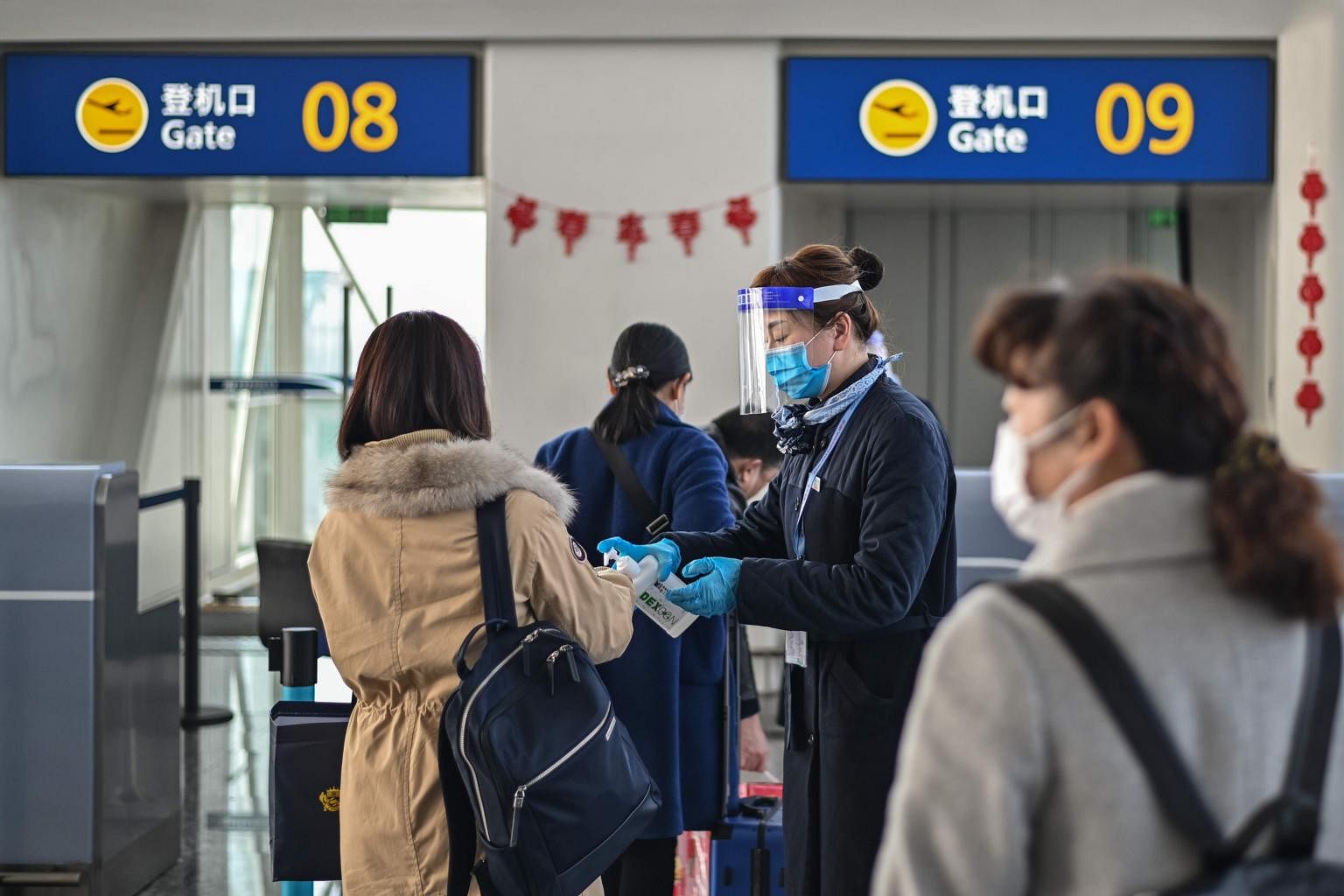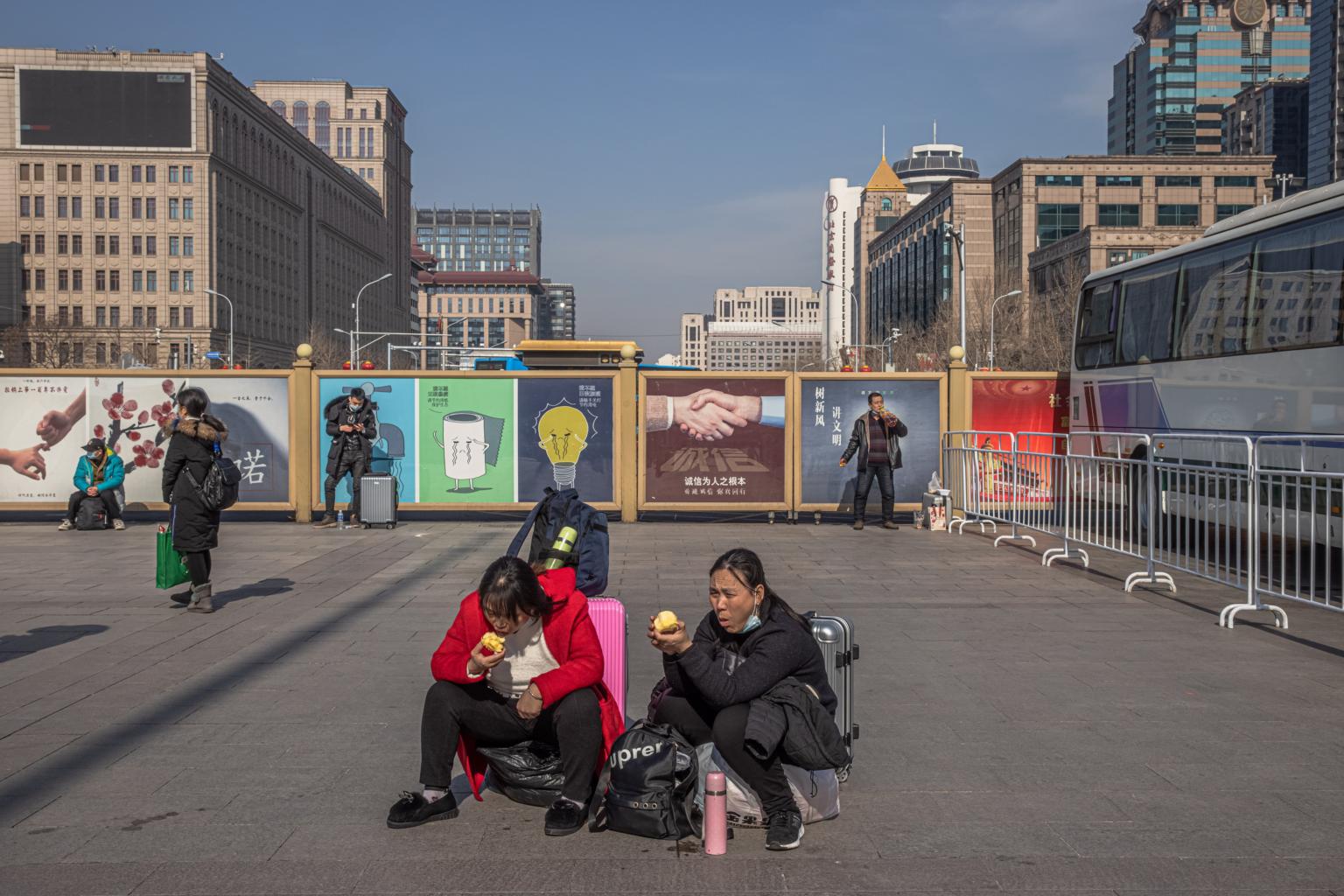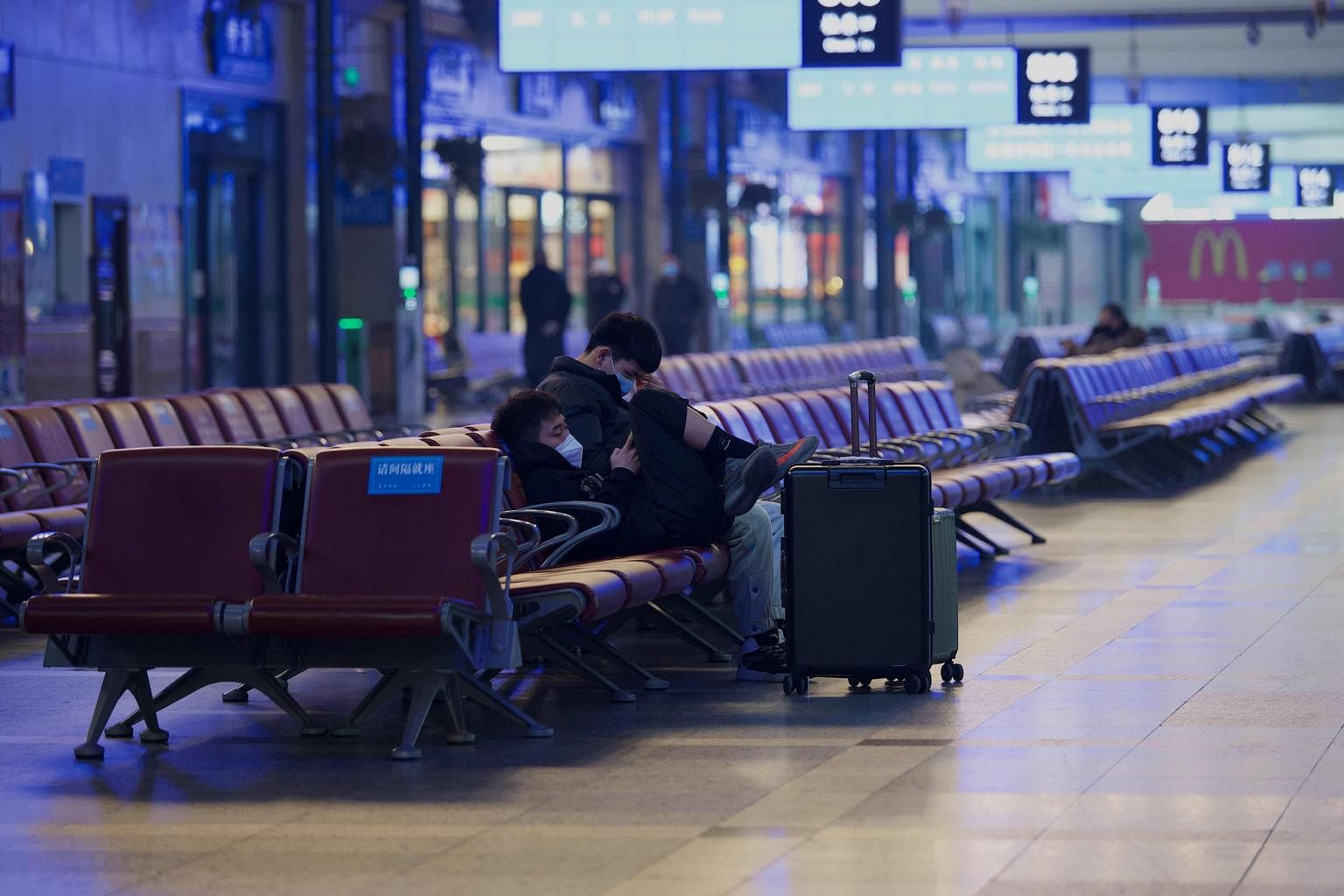Subdued Chinese New Year in China amid travel curbs
Sign up now: Get ST's newsletters delivered to your inbox
Follow topic:
BEIJING - Ms Phyllis Zhang's trip home to Hubei province this year was unusually quiet.
There were no crowds at the Beijing Daxing International Airport when she flew home last Monday (Feb 8), and no snaking lines at the check-in counters.
"There were very few people, the airport was basically empty. It was completely different compared to travelling during this period in previous years," said Ms Zhang, who is in her 30s and works at an edutech firm in Beijing.
Similar scenes unfolded at bus and train stations, and airports throughout China this year.
Chinese New Year usually heralds the start of the "chunyun", where hundreds and millions of people head back to their hometowns from cities around China for the holidays.
But this year the authorities have discouraged people from doing so, calling on them to avoid "non-essential" travel in a bid to cut down on the risk of a resurgence of Covid-19.
It will be the second year in a row that the disease has dampened celebrations for the country's biggest annual festival.
The authorities have put in place additional requirements for people who choose to travel - requiring them to produce a negative nucleic acid test taken at least seven days before they leave when they arrive at their destination.
Those returning home from medium or high-risk areas where cases have been discovered will also have to undergo centralised quarantine.
Employees working for state-owned companies and civil servants have also been told not to travel without prior approval, state media have reported.
The requirements have discouraged many from making the trip home.
Data from travel analytics firm ForwardKeys earlier this month showed that airline bookings for domestic travel fell by 75.9 per cent compared with the same period in pre-pandemic 2019.
Online activity on ticket buying platforms plunged by 53.6 per cent compared to last year, according to data analytics firm Getui.


Passengers wait outside the Beijing Railway Station, on Feb 10, 2021.
PHOTO: EPA-EFE
The data is roughly in line with predictions from the authorities, who forecast that there would be about 1.15 billion trips this year, a figure that is about 60 per cent lower than before the pandemic.
Ms Zhang told The Straits Times she only decided to return home in Xiangyang, a city about 300km from Wuhan, when she was certain there was no need to quarantine.
"Last year, because Hubei was the epicentre of the outbreak, we were confined to our homes after the eve of Chinese New Year.. the situation this year is more or less back to normal," she said.
But others like Mr George Zhou have decided not to return home and instead are spending the holidays wherever they are.
The 21-year-old hotel guest relations officer will be staying put in Sanya city in southern Hainan province where he works - the first time he is spending the Chinese New Year holidays away from home in northern-most Heilongjiang province.
He told The Straits Times that he will miss lighting up firecrackers, playing mahjong with his extended family, and eating dumplings wrapped by his grandmother at the stroke of midnight on Chinese New Year Eve.
"I really love going back home but this year there's really no way to do so. It's a real pity," said Mr Zhou.

Passengers wait for their train at the Beijing railway station, on Feb 11, 2021.
PHOTO: AFP
His hometown of Suihua was among the epicentres of a recent spate of Covid-19 infections in the northern provinces.
But one consolation for Mr Zhou is that his grandparents have gone to Hainan to spend the holidays with him.
"At least this year I will still be able to eat my grandmother's dumplings. They're delicious," he said.

